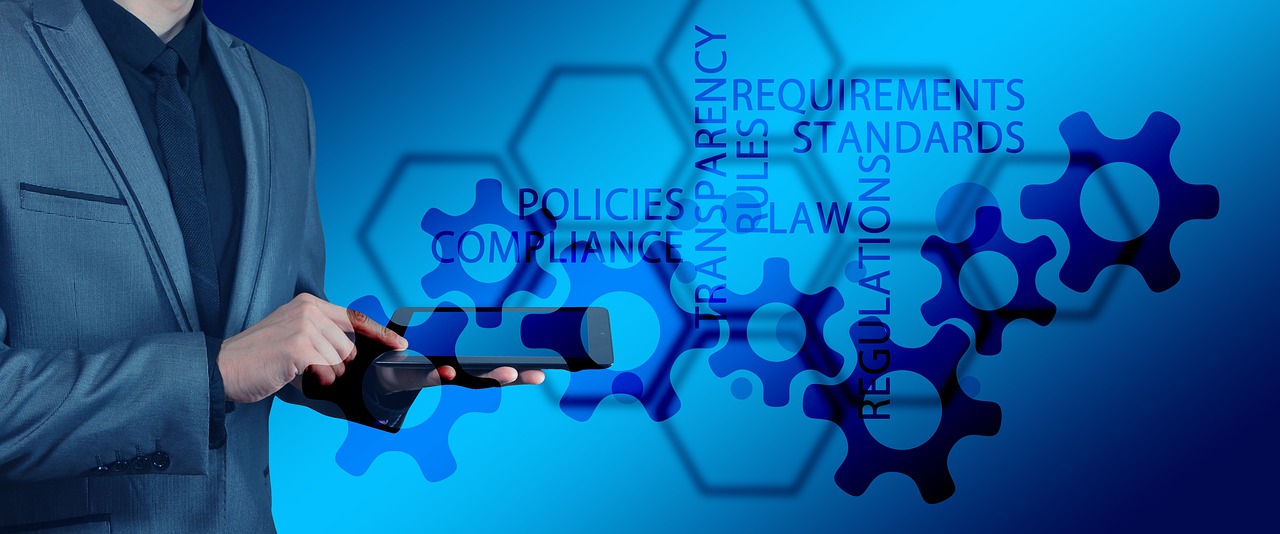In today’s digital age, social media has become an integral part of our everyday lives. However, what many individuals and businesses fail to realize is the potential legal implications that can arise from their social media activities. That’s where we come in. Our team of expert lawyers specializes in social media claims compliance, working tirelessly to ensure that your online presence aligns with all relevant laws and regulations. Whether it’s addressing intellectual property concerns, navigating the complexities of advertising laws, or providing guidance on privacy issues, we have the expertise to help you stay in compliance. In this series of articles, we will delve into the various aspects of social media claims compliance, providing you with valuable insights and practical advice that can protect your business from legal jeopardy. So, read on to learn more, and remember, when it comes to social media compliance, our lawyers are here to help.

1. Overview of Social Media Claims Compliance
1.1 Definition of Social Media Claims Compliance
Social media claims compliance refers to the adherence to laws, regulations, and advertising standards when making claims on social media platforms. It encompasses the responsibility of businesses to ensure their social media content is accurate, truthful, and compliant with relevant regulations.
1.2 Importance of Social Media Claims Compliance
Social media claims compliance is crucial for businesses to maintain trust, credibility, and a positive brand reputation. By ensuring compliance, businesses can minimize the risk of legal consequences and protect both their customers and their own interests. Given the increasing prevalence of social media in today’s digital age, non-compliance can lead to severe reputational damage and financial repercussions for companies.
1.3 Laws and Regulations Related to Social Media Claims Compliance
Several laws and regulations govern social media claims compliance. These include but are not limited to:
- Federal Trade Commission (FTC) regulations: The FTC enforces guidelines requiring clear disclosure of any material connections or sponsorships in social media posts, ensuring transparency for consumers.
- FDA regulations: The Food and Drug Administration has specific requirements for advertising claims related to pharmaceuticals, medical devices, and dietary supplements.
- Consumer protection laws: Various consumer protection laws at the federal and state levels prohibit false, deceptive, or misleading claims in advertising, including those on social media.
- Advertising standards: Industry-specific advertising standards set guidelines for acceptable claims in sectors such as healthcare, food and beverage, financial services, technology, and retail.
2. Benefits of Social Media Claims Compliance
2.1 Avoiding Legal Consequences
Ensuring social media claims compliance helps businesses avoid legal consequences such as fines, penalties, and litigation. By adhering to applicable laws and regulations, companies can minimize the risk of regulatory scrutiny and potential legal disputes. Compliance provides a solid defense in any legal proceedings, ensuring that businesses can focus on their core operations without the burden of legal issues.
2.2 Building Trust and Credibility
Compliance with social media claims demonstrates a commitment to honesty, transparency, and ethical business practices. By providing accurate and truthful information, businesses build trust and credibility with their audience. Customers are more likely to engage with brands they trust, resulting in increased loyalty, positive word-of-mouth, and potentially higher sales.
2.3 Enhancing Brand Reputation
A strong brand reputation is essential for business success, and social media claims compliance plays a vital role in shaping that reputation. Compliance ensures that businesses maintain integrity in their advertising practices, projecting a positive image to consumers and stakeholders. A solid reputation can lead to increased customer loyalty, better relationships with partners and investors, and improved overall brand value.
2.4 Increasing Customer Engagement
Compliant social media claims increase customer engagement by providing accurate and trustworthy information. When businesses deliver transparent and reliable content, customers are more likely to interact, share, and comment on posts, leading to increased visibility and reach. Engaged customers can become brand advocates, further promoting the business through their own social networks.
2.5 Gaining Competitive Advantage
In a crowded marketplace, social media claims compliance can give businesses a competitive edge. By differentiating themselves through accurate and compliant claims, companies can stand out from their competitors. Consumers are increasingly drawn to businesses with responsible advertising practices, making compliance a valuable asset for attracting customers and gaining a competitive advantage.
3. Common Challenges in Achieving Social Media Claims Compliance
3.1 Lack of Awareness
One of the major challenges in achieving social media claims compliance is a lack of awareness about relevant laws, regulations, and advertising standards. Many businesses may not be fully informed or updated about the specific requirements related to social media claims. This can lead to unintentional non-compliance and potential legal consequences.
3.2 Legal and Regulatory Complexity
The legal and regulatory landscape surrounding social media claims compliance can be complex and continuously evolving. Businesses must navigate multiple statutes, regulations, and guidelines that vary across jurisdictions and industries. Complying with these requirements while keeping up with changes can be a challenging task for businesses, particularly those without legal expertise.
3.3 Monitoring and Managing Content
The constant flow of social media content presents another challenge in achieving compliance. With numerous posts, comments, and interactions, businesses need robust systems for monitoring and managing their social media presence. Ensuring that all content is compliant and aligns with advertising standards can be time-consuming and resource-intensive.
3.4 Ensuring Consistency and Accuracy
Maintaining consistency and accuracy in social media claims is crucial for compliance. However, businesses may face challenges in ensuring that claims are consistently communicated across various social media platforms and channels. Discrepancies and inaccuracies can lead to confusion among consumers and potential regulatory scrutiny.
4. Strategies for Ensuring Social Media Claims Compliance
4.1 Establishing Clear Social Media Policies
Businesses should develop and implement clear social media policies that outline the guidelines and requirements for compliant claims. These policies should cover the use of language, evidentiary standards, disclosure of material connections, and adherence to relevant laws and regulations. Regular training and communication about the policies are essential to ensure understanding and compliance among employees.
4.2 Providing Employee Training and Education
Educating employees on social media claims compliance is crucial for mitigating risks and ensuring consistency. Training should encompass the legal and regulatory landscape, industry-specific advertising standards, and the importance of accurate and transparent claims. Ongoing education will help employees understand their role in compliance and contribute to a culture of accountability.
4.3 Implementing Robust Monitoring and Reporting Systems
To maintain social media claims compliance, businesses need to invest in monitoring and reporting systems. These systems should regularly monitor social media channels for compliance issues, false or misleading claims, and material connections. Effective reporting mechanisms enable quick identification and resolution of compliance-related issues.
4.4 Conducting Regular Compliance Audits
Regular compliance audits are essential to ensure ongoing social media claims compliance. These audits should review social media content, policies, training programs, and monitoring systems to identify any areas of non-compliance. Working with legal professionals and compliance experts can enhance the effectiveness of these audits and provide valuable insights for improvement.
4.5 Working with Legal Professionals and Compliance Experts
For comprehensive social media claims compliance, businesses should seek assistance from legal professionals and compliance experts. These experts can provide guidance on navigating the legal landscape, interpreting relevant laws and regulations, and ensuring compliance with industry-specific advertising standards. Their expertise can help businesses avoid legal pitfalls and develop robust compliance strategies.
5. Case Studies: Social Media Claims Compliance Success Stories
5.1 Company A: How They Achieved Social Media Claims Compliance
Company A, a global healthcare brand, established a robust social media claims compliance strategy. They developed clear social media policies that outlined the requirements for accurate and compliant claims. Alongside employee training and education programs, they implemented a monitoring system that regularly assessed social media content for compliance issues. By conducting regular compliance audits and working closely with legal professionals, Company A achieved social media claims compliance, ensuring their advertising practices remained within the legal boundaries.
5.2 Company B: Best Practices in Social Media Claims Compliance
Company B, a leading technology company, prioritized social media claims compliance by establishing clear guidelines for their employees. They provided comprehensive training on compliance requirements and regularly updated employees on changes in regulations and advertising standards. Company B partnered with compliance experts to conduct annual audits and ensure ongoing compliance. Their commitment to compliance not only protected their brand reputation but also resulted in increased customer trust and engagement.
6. Social Media Claims Compliance and Advertising Standards
6.1 Understanding Advertising Standards
Advertising standards are guidelines established by various industry bodies to govern acceptable claims in advertising. These standards ensure that businesses adhere to ethical practices and avoid false, deceptive, or misleading claims. Compliance with advertising standards is crucial for social media claims compliance as it helps businesses maintain integrity and protect consumers’ interests.
6.2 Key Considerations for Social Media Advertising
When engaging in social media advertising, businesses must consider key factors to ensure compliance. These include clear and unambiguous language, evidence-backed claims, avoiding exaggerations and overstatements, timely responses to consumer feedback, and disclosures of material connections and sponsorships. Adhering to these considerations ensures that businesses meet advertising standards and remain compliant.
6.3 Compliance with FTC Guidelines
The FTC enforces guidelines related to social media claims compliance, emphasizing transparency and disclosure of material connections. Businesses must clearly disclose any relationships or sponsorships that may influence social media content. Failure to comply with FTC guidelines can result in legal consequences and reputational damage.
6.4 Avoiding False or Misleading Claims
Businesses must avoid making false or misleading claims in their social media content. Claims should be accurate, substantiated, and not likely to mislead consumers. By maintaining honesty and clarity in their claims, businesses can build trust with their audience and avoid legal repercussions.
6.5 Disclosing Material Connections and Sponsorships
Disclosure of material connections and sponsorships is essential to ensure transparency in social media advertising. When a business has a material connection to a product or service endorsed on social media, such as a financial interest, they must disclose it. By providing this disclosure, businesses protect the interests of their customers and comply with legal requirements.

7. Social Media Claims Compliance for Different Industries
7.1 Healthcare Industry
In the healthcare industry, social media claims compliance carries significant importance due to the potential impact on public health. Businesses must comply with FDA regulations for pharmaceuticals, medical devices, and dietary supplements. Additionally, advertising claims related to health and medical treatments need to be supported by scientific evidence and adhere to industry-specific guidelines.
7.2 Food and Beverage Industry
Social media claims compliance is crucial in the food and beverage industry to avoid false or misleading advertising. Companies must adhere to FDA regulations for nutrition claims, ingredient labeling, and health-related claims. It is essential to ensure that claims made on social media align with the requirements set by relevant regulatory bodies.
7.3 Financial Services Industry
In the financial services industry, social media claims compliance is vital to protect consumers from deceptive or misleading information. Compliance with industry-specific regulations and the disclosure of material connections and sponsorships is essential. Accurate and clear claims regarding financial products, services, and promotions are crucial to maintain credibility and consumer trust.
7.4 Technology Industry
The technology industry faces unique challenges in social media claims compliance due to its rapidly evolving nature. Companies must ensure that claims about technology products and services are accurate and supported by evidence. Compliance with industry-specific guidelines, such as those related to cybersecurity and data protection, is crucial for maintaining trust with customers.
7.5 Retail Industry
In the retail industry, social media claims compliance is vital for consumer protection and trust. Businesses must ensure that claims related to products, prices, and promotions are accurate and not likely to mislead consumers. Complying with industry-specific advertising standards and regulations is key to building a positive brand reputation and increasing customer loyalty.
8. Social Media Claims Compliance Best Practices
8.1 Clear and Unambiguous Language
Using clear and unambiguous language ensures that social media claims are easily understandable by consumers. Avoiding confusing or misleading terminology helps both businesses and consumers align their expectations and prevent potential issues.
8.2 Backing Claims with Evidence
To maintain compliance, businesses should substantiate their social media claims with credible evidence. Scientific studies, research data, customer testimonials, or other forms of evidence help build trust and credibility with the audience.
8.3 Avoiding Exaggerations and Overstatements
Businesses should refrain from making exaggerated or overstated claims in their social media content. Representing products or services accurately and avoiding misleading statements are crucial for maintaining compliance and fostering consumer trust.
8.4 Timely Response to Consumer Feedback
Promptly addressing consumer feedback and inquiries on social media is essential for compliance. Responding to customer queries, concerns, or complaints demonstrates a commitment to customer service and transparency.
8.5 Regularly Reviewing and Updating Compliance Practices
To stay compliant, businesses should regularly review and update their social media claims compliance practices. This includes keeping up with changes in laws, regulations, and advertising standards, as well as assessing the effectiveness of internal policies and procedures.

9. Frequently Asked Questions (FAQs) about Social Media Claims Compliance
9.1 What is social media claims compliance?
Social media claims compliance refers to the adherence to laws, regulations, and advertising standards when making claims on social media platforms. It ensures that businesses provide accurate, truthful, and compliant information to consumers on social media.
9.2 Why is social media claims compliance important for businesses?
Social media claims compliance is important for businesses to protect their brand reputation, maintain consumer trust, and avoid legal consequences. Compliance helps businesses build credibility, increase customer engagement, and gain a competitive advantage in the marketplace.
9.3 What are some common challenges in achieving social media claims compliance?
Common challenges in achieving social media claims compliance include lack of awareness about regulations, legal and regulatory complexity, difficulty in monitoring and managing content, and ensuring consistency and accuracy of claims across platforms.
9.4 What strategies can businesses use to ensure social media claims compliance?
To ensure social media claims compliance, businesses can establish clear social media policies, provide training and education to employees, implement robust monitoring and reporting systems, conduct regular compliance audits, and seek guidance from legal professionals and compliance experts.
9.5 How can businesses avoid legal consequences related to social media claims?
Businesses can avoid legal consequences related to social media claims by adhering to relevant laws, regulations, and advertising standards. This includes understanding and complying with FTC guidelines, avoiding false or misleading claims, and disclosing material connections and sponsorships. Regular compliance audits and working with legal professionals can help businesses mitigate risks and ensure compliance.


































